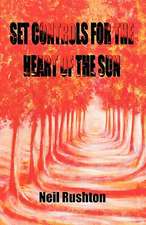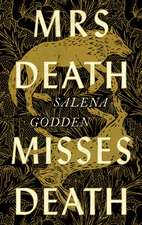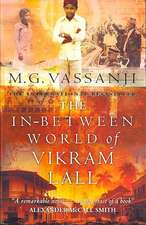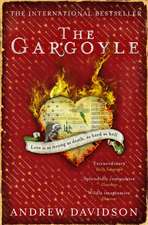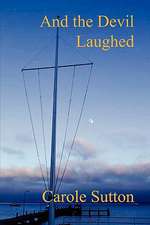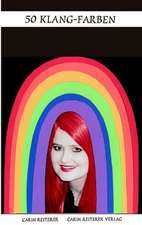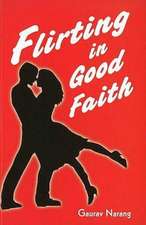Taipei
Autor Tao Lin Kirby Heyborneen Limba Engleză CD-Audio – 15 sep 2013
Taipei by Tao Lin is an ode-or lament-to the way we live now. Following Paul from New York, where he comically navigates Manhattan's art and literary scenes, to Taipei, Taiwan, where he confronts his family's roots, we see one relationship fail, while another is born on the Internet and blooms into an unexpected wedding in Las Vegas. Along the way-whether on all-night drives up the East Coast, shoplifting excursions in the South, book readings on the West Coast, or ill-advised grocery runs in Ohio-movies are made with laptop cameras, massive amounts of drugs are ingested, and two young lovers come to learn what it means to share themselves completely. The result is a suspenseful meditation on memory, love, and what it means to be alive, young, and on the fringe in America, or anywhere else for that matter.
| Toate formatele și edițiile | Preț | Express |
|---|---|---|
| Paperback (2) | 63.11 lei 3-5 săpt. | +7.67 lei 4-10 zile |
| Canongate Books – 4 iul 2013 | 63.11 lei 3-5 săpt. | +7.67 lei 4-10 zile |
| Vintage Publishing – 3 iun 2013 | 113.48 lei 3-5 săpt. |
Preț: 212.67 lei
Nou
Puncte Express: 319
Preț estimativ în valută:
40.69€ • 42.60$ • 33.87£
40.69€ • 42.60$ • 33.87£
Indisponibil temporar
Doresc să fiu notificat când acest titlu va fi disponibil:
Se trimite...
Preluare comenzi: 021 569.72.76
Specificații
ISBN-13: 9781452616643
ISBN-10: 1452616647
Dimensiuni: 167 x 138 x 31 mm
Greutate: 0.21 kg
Ediția:Completă
Editura: TANTOR MEDIA INC
ISBN-10: 1452616647
Dimensiuni: 167 x 138 x 31 mm
Greutate: 0.21 kg
Ediția:Completă
Editura: TANTOR MEDIA INC
Notă biografică
Tao Lin is the author of several books of fiction and poetry, including Eeeee Eee Eeee, Richard Yates, You Are a Little Bit Happier Than I Am, and Cognitive-Behavioral Therapy. Tao has taught a graduate course on the contemporary short story at Sarah Lawrence College. He lives in New York City. Kirby Heyborne is an accomplished actor, musician, and comedian. He has received critical acclaim for his starring roles in the award-winning World War II drama Saints and Soldiers, the lighthearted family comedy The R.M., the award-winning boy-band mockumentary The Sons of Provo, and the award-winning quixotic comedy Pirates of the Great Salt Lake. He has had starring roles in thirteen features and many short films. Kirby has also appeared on the WB's Everwood and many national commercials. Recently, Kirby was seen as a recurring character on the hit FOX sitcom Free Ride. Kirby has received a number of AudioFile Earphones Awards for excellence in audiobook narration. He has narrated such titles as Nick and Nora's Infinite Playlist by Rachel Cohn and David Levithan, Black Swan Green by David Mitchell, Breathers by S. G. Browne, and The Genius by Jesse Kellerman. Kirby is a cofounder and director of the celebrated Los Angelesߝbased improv comedy group The Society. Also a successful musician, Kirby has released four solo albums and has had his music featured in many films. Kirby has delighted audiences across the country with his ability to blend heart-warming stories, beautiful music, and comedic wit.
Descriere
From one of this generation's most talked about and enigmatic writers comes a deeply personal, powerful, and moving novel about family, relationships, accelerating drug use, and the lingering possibility of death.
Recenzii
"[A] modernist masterpiece. . . . True, his characters are young people living in Brooklyn. And he writes about the Internet. But we should stop calling Tao Lin the voice of his generation. Taipei, his new novel, has less to do with his generation than with the literary tradition of Knut Hamsun, Ernest Hemingway, and Robert Musil. . . . It’s a new style for Mr. Lin, one that confesses the urgency of his ambition. If you thought his previous novels were stunts, read this one. . . . It’s not exactly what I expected from Tao Lin’s masterpiece. Which reminds me why I hadn’t necessarily expected there to be one."--Benjamin Lytal, The New York Observer
“Mr. Lin casts a spell in Taipei. . . . [It] is his strongest book. At its best, it has distant echoes of early Hemingway, as filtered through Twitter and Klonopin: it’s terse, neutral, composed of small and often intricate gestures. . . . Two things move Taipei beyond being merely a drug-sodden and lightly journalistic novel about how New York’s 21st-century literary set flowers now. One is Mr. Lin’s deftness with what I’ll call emotional close-up work . . . it’s about flickers of perception, flickers that the author catches as if they were fireflies. . . . This fluid novel also posits that the online world is more addictive, more mind-bending and perhaps more destructive than anything you will find in a pharmacy or buy from a dealer. Almost all of this novel’s metaphors and similes emerge from the author’s experience of the Internet and his sense of the way it is colonizing consciousness. . . . Taipei can be so desultory that you think: this is an approximation of how Lou Reed must have felt during the entirety of 1972. At the same time, it’s possible to imagine Taipei as a future Danny Boyle movie. . . . Mr. Lin’s prose has been compared to that of Bret Easton Ellis’s deadpan early work. . . . But there’s also a hint of Ann Beattie in Mr. Lin, a hint I hope he will be able to cultivate.”—Dwight Garner, The New York Times
“One thing I like about Tao's writing is how beside the point for me 'liking' it feels — it's a frank depiction of the rhythm of a contemporary consciousness or lack of consciousness and so it has a power that bypasses those questions of taste entirely. Like it or not, it has the force of the real.”—Ben Lerner, Author of Leaving the Atocha Station
“Gchat as dialogue, endless drugs, misused words—welcome to the genius of Tao Lin’s new novel Taipei. . . . Tao Lin is one of the few fiction writers around who engages with contemporary life, rather than treating his writing online as existing in opposition to or apart from the hallowed analogue space of the novel. He’s consistently good for a few laughs and writes in a singular style already much imitated by his many sycophants on the internet. Some people like Tao Lin for solely these reasons, or treat him as a sort of novelty or joke. But Lin can also produce the feelings of existential wonder that all good novelists provoke. His writing reveals the hyperbole in conversational language that we use, it seems, to make up for living lives where equanimity and well-adjustment are the most valued attributes, where human emotions are pathologized into illness. . . . Taipei is exactly the kind of book I hoped Tao Lin would one day write.”—Emily Witt, The Daily Beast
“Perhaps his strongest work to date. . . . Lin's strength is his ability to zoom in on scenes, observing life one pixel at a time.”—Entertainment Weekly
“Tao Lin's novel Taipei could, as Richard Lynch-Smith suggests and as I argued recently in Futurebook, be a game changer.”—Dan Holloway, The Gaurdian, UK
“Tao Lin has always been the Ghost Plant of the emergent literary world. . . . Taipei will most certainly be his turning point with critics. Reviewers must now contend with Tao’s writerly strengths, his honesty, insights about relationships, and quirky humor. Taipei is brilliant, clearly his most compelling publication so far by far. . . . One of the joys of Tao’s book is how startling and life affirming we find his ability to keep rediscovering close friends and lovers. Like Ghost Plants, they endure. They become new, again and again, just by being an important and constant presence in Tao’s life and thanks to his ability to keep reimagining them afresh.”--PASTE
“[Taipei] could also have been called Drugs. But the marketing team at Vintage may not have wanted it placed alongside contemporary “drug fiction” like Irvine Welsh's The Acid House (1994) or Ecstasy (1996). Welsh's manic, slangy, sensationalist world is subcultural without being countercultural, and thus a kind of cultural ghetto unto itself; Tao Lin has grander ambitions. The generation he depicts is hedonistic, depressed, self-loathing, detached, and conspicuously blasé in its attitudes toward drugs. But unlike Bret Easton Ellis in Less Than Zero, Lin doesn’t romanticize drugs, or really even seem to enjoy them much. Nor does he moralize about them. Taipei carefully avoids the conventional drug genres of bacchanal and cautionary tale. . . . In Taipei, drug use is less about changing the world than it is about adjusting to it. . . . If altered states were once, as the old Aldous Huxley chestnut has it, “doors of perception,” then sometime between Huxley’s era and the one depicted in Taipei, those doors seem to have closed. . . . In fact, Taipei is only incidentally about drugs. It is a depiction of the alienated subject in a personality-driven world where social signals and media messages are so complex as to make those without mastery of the language feel practically schizophrenic. . . . It is a testament to Lin’s talent as a writer that Taipei is so haunting just where one would expect it to be self-indulgent, hackneyed, or stereotypical. The paradox is that Taipei's failure of the imagination is so closely tied to its success.”--The LA Review of Books
“When affecting irony became a national pastime, sincerity went out the door. That’s why it’s so startling to read Taipei, the latest novel from alt-lit darling Tao Lin. For a novel that’s partially set in Williamsburg--the hipster capital of the world--Taipei is refreshingly non-derivative. . . . Taipei isn’t your ordinary literature about addiction. It trades “Requiem for a Dream”-type melodrama for something more boring — and this isn’t necessarily a bad thing. Forgoing the overused, cautionary storyline of an addict spiraling out of control, Lin uses drugs as a plot device to illustrate a specifically modern sort of alienation.”—The New York Daily News
“Tao Lin’s writing is honest, even brave, in the way it portrays the agonizing self-paralysis of the characters. The tension and interest in Taipei comes from the inexpressible need to relate to people, and the difficulties inherent in sustaining connections. Through drugs, through sex, through art and the internet, Paul struggles to even understand his life. It's one of the more interesting modern novels I've read, and there's no reason to think Tao Lin won't keep getting better at this.”—The Portland Mercury
“Taipei might be the first spiritual narrative that millennials—that anyone living in 2013, really—can get behind.”--PopMatters
"Taipei casts a surprisingly introspective eye on the spare, 21st-century landscape Lin has such a knack for depicting. . . . Lin is an existential writer, really, less interested in tracing the contours of his particular social group than in describing the very personal and sometimes unbearable tyranny of one’s own mind—and what it requires (sometimes measured in mg doses) to venture out in search of others. . . . [T]he novel’s climactic scene...by turns terrifying and funny...builds over a few pages to a revelation that, in its sheer unexpected beauty, recalls the powerfully moving ending of David Markson’s Wittgenstein’s Mistress."--Slate
"[P]sychologically astute, often beautiful and completely unexpected."—NPR
“[Tao Lin] is a lightning rod for a generation of writers who’ve come of age online.”--NYLON
"Taipei mashes up the literatures of intoxication (a la Irvine Welsh) and ennui (a la Bret Easton Ellis) to produce a surprisingly clearheaded cautionary tale about a drug-loving young Taiwanese-American art-and-book-world scenester trying to navigate the more consequential realms of family, romance, and adulthood."--ELLE
“With Taipei Tao Lin becomes the most interesting prose stylist of his generation.”—Bret Easton Ellis
"Taipei reveals Lin at his funniest, most incisive best. [...] It’s a book about how to feel and think in a world increasingly designed to numb both faculties [...] his strongest novel yet."—The Globe and Mail
"I'm totally taken by it. There's something so unending and relentless about it [...] the style is now so boiled down and austere and yet totally minute. It's tedious yet exhilarating. Such a weird experience reading it."—Kate Zambeno, author of Green Girl
"Underneath Tao Lin's sometimes awkward and sometimes hilarious detachment, he offers readers a journey of self-discovery and transformation. Beautiful prose, insightful observations -- highly recommend for anyone interested in what it means to say goodbye to youth."—Matthew Gallaway, author of The Metropolis Case
"Tao Lin [is] an excellent writer of avant-garde fiction. His new novel is his most mature work, and follows a young New York writer to Taipei, where he must reconcile his family’s roots with the haze of MDMA, texts and tweets that he’s been living in. Mr. Lin has refined his deadpan prose style here into an icy, cynical, but ultimately thrilling and unique literary voice."—New York Observer
“Tao Lin has made a distinctive career out of sticking to his guns, his guns being the ultra-high-res self-consciousness that characterizes our lives but which we routinely ignore in our lives and in our art. In Taipei he is a constant microscope, examining a world of miniature gestures, tiny facial movements, hands in motion, shrugs, nods, twists, ticks, flicks and snaps, a world in which the barrage of information we take in moment by moment is simultaneously cataloged, interpreted, cross-referenced, recorded, and filed. Taipei is a paean to the minutely examined life, where what is examined is every twitch, flinch, jerk, spasm, tremor, and tic, every high-speed half-formed thought, everything that we routinely consider meaningless and inessential. Here all that is turned on its head and becomes central and predominate, fundamental to being. There is no mistaking that we live a new, ultra self-conscious life, skating on the surface of things while overlaying that surface with a facsimile of the "old life" in which traditional values retain their power and majesty. What is fascinating about Tao Lin's fiction is his willingness, nay, insistence, on sticking to the true life of the new century, as raw, flat, fatigued as it may be. In Taipei he follows an utterly modern creature through a semi-robotic life in America and Taiwan, limiting himself and his characters to reasonably accurate renderings of normal responses without the literary humanist overlay, that is to say, a world almost binary and without much in the way of conventional "emotion," the stuff of which storytelling has forever been made. Lin is a 21st century literary adventurer, willing to work with what he actually has rather than a simulacrum of what once was, or might have been. The result is a fascinating book, bone dry, repellant, painful, but relentlessly true to life. Stripped of any version of the pretty Hallmark Card world that occupies so much fiction today, and which seems vulgar and pathetic by comparison, Taipei lays open the present and likely future of ordinary life in a way that few writers would acknowledge, let alone champion. You owe it to yourself to read Taipei, and to contemplate the world it predicts.”—Frederick Barthelme, author of Waveland
“Taipei is a strange, hypnotic novel—a quarter-life love (and love-lost) story."—Porochista Khakpour, author of Sons and Other Flammable Objects
“For all its straightforwardness, Lin’s previous work—with its flat, Internet-inspired prose issued by small presses—has presented a stumbling stone for readers who fall outside his North Brooklyn contingent, for whom he is the standard bearer. This will change with the breakout Taipei, a novel about disaffection that’s oddly affecting. . . . Everything about Taipei appears to run contrary to the standard idea of what constitutes art. And yet, the documentary precision captures the sleepwalking malaise of Lin’s generation so completely, it’s scary. . . . Yet for all its emotional reality, Taipei is a book without an ounce of self-pity, melodrama, or posturing, making the glacial Lin (Richard Yates) the perfect poster child for a generation facing—and failing to face—maturity.”—Publishers Weekly, starred review
“The insane level of scrutiny of everyday personal behavior in Taipei feels somewhere between that of Andy Warhol and a young, bored Patrick Bateman. All the strange modernity we’ve come to expect from Tao Lin—alienation, obsession, social confusion, drugs, the internet, sex, food, death—is rendered here with an calm intuition, somehow distant and metaphysical at once, brutally honest and avoidant, touching and monotonic, like getting sewn inside a mask of your own face. And as can also always be expected of the author, it is mesmerizing, sharp, singularly him, a work of vision so relentless it forces most any reader to respond.”—Blake Butler, author of Sky Saw
“Mr. Lin casts a spell in Taipei. . . . [It] is his strongest book. At its best, it has distant echoes of early Hemingway, as filtered through Twitter and Klonopin: it’s terse, neutral, composed of small and often intricate gestures. . . . Two things move Taipei beyond being merely a drug-sodden and lightly journalistic novel about how New York’s 21st-century literary set flowers now. One is Mr. Lin’s deftness with what I’ll call emotional close-up work . . . it’s about flickers of perception, flickers that the author catches as if they were fireflies. . . . This fluid novel also posits that the online world is more addictive, more mind-bending and perhaps more destructive than anything you will find in a pharmacy or buy from a dealer. Almost all of this novel’s metaphors and similes emerge from the author’s experience of the Internet and his sense of the way it is colonizing consciousness. . . . Taipei can be so desultory that you think: this is an approximation of how Lou Reed must have felt during the entirety of 1972. At the same time, it’s possible to imagine Taipei as a future Danny Boyle movie. . . . Mr. Lin’s prose has been compared to that of Bret Easton Ellis’s deadpan early work. . . . But there’s also a hint of Ann Beattie in Mr. Lin, a hint I hope he will be able to cultivate.”—Dwight Garner, The New York Times
“One thing I like about Tao's writing is how beside the point for me 'liking' it feels — it's a frank depiction of the rhythm of a contemporary consciousness or lack of consciousness and so it has a power that bypasses those questions of taste entirely. Like it or not, it has the force of the real.”—Ben Lerner, Author of Leaving the Atocha Station
“Gchat as dialogue, endless drugs, misused words—welcome to the genius of Tao Lin’s new novel Taipei. . . . Tao Lin is one of the few fiction writers around who engages with contemporary life, rather than treating his writing online as existing in opposition to or apart from the hallowed analogue space of the novel. He’s consistently good for a few laughs and writes in a singular style already much imitated by his many sycophants on the internet. Some people like Tao Lin for solely these reasons, or treat him as a sort of novelty or joke. But Lin can also produce the feelings of existential wonder that all good novelists provoke. His writing reveals the hyperbole in conversational language that we use, it seems, to make up for living lives where equanimity and well-adjustment are the most valued attributes, where human emotions are pathologized into illness. . . . Taipei is exactly the kind of book I hoped Tao Lin would one day write.”—Emily Witt, The Daily Beast
“Perhaps his strongest work to date. . . . Lin's strength is his ability to zoom in on scenes, observing life one pixel at a time.”—Entertainment Weekly
“Tao Lin's novel Taipei could, as Richard Lynch-Smith suggests and as I argued recently in Futurebook, be a game changer.”—Dan Holloway, The Gaurdian, UK
“Tao Lin has always been the Ghost Plant of the emergent literary world. . . . Taipei will most certainly be his turning point with critics. Reviewers must now contend with Tao’s writerly strengths, his honesty, insights about relationships, and quirky humor. Taipei is brilliant, clearly his most compelling publication so far by far. . . . One of the joys of Tao’s book is how startling and life affirming we find his ability to keep rediscovering close friends and lovers. Like Ghost Plants, they endure. They become new, again and again, just by being an important and constant presence in Tao’s life and thanks to his ability to keep reimagining them afresh.”--PASTE
“[Taipei] could also have been called Drugs. But the marketing team at Vintage may not have wanted it placed alongside contemporary “drug fiction” like Irvine Welsh's The Acid House (1994) or Ecstasy (1996). Welsh's manic, slangy, sensationalist world is subcultural without being countercultural, and thus a kind of cultural ghetto unto itself; Tao Lin has grander ambitions. The generation he depicts is hedonistic, depressed, self-loathing, detached, and conspicuously blasé in its attitudes toward drugs. But unlike Bret Easton Ellis in Less Than Zero, Lin doesn’t romanticize drugs, or really even seem to enjoy them much. Nor does he moralize about them. Taipei carefully avoids the conventional drug genres of bacchanal and cautionary tale. . . . In Taipei, drug use is less about changing the world than it is about adjusting to it. . . . If altered states were once, as the old Aldous Huxley chestnut has it, “doors of perception,” then sometime between Huxley’s era and the one depicted in Taipei, those doors seem to have closed. . . . In fact, Taipei is only incidentally about drugs. It is a depiction of the alienated subject in a personality-driven world where social signals and media messages are so complex as to make those without mastery of the language feel practically schizophrenic. . . . It is a testament to Lin’s talent as a writer that Taipei is so haunting just where one would expect it to be self-indulgent, hackneyed, or stereotypical. The paradox is that Taipei's failure of the imagination is so closely tied to its success.”--The LA Review of Books
“When affecting irony became a national pastime, sincerity went out the door. That’s why it’s so startling to read Taipei, the latest novel from alt-lit darling Tao Lin. For a novel that’s partially set in Williamsburg--the hipster capital of the world--Taipei is refreshingly non-derivative. . . . Taipei isn’t your ordinary literature about addiction. It trades “Requiem for a Dream”-type melodrama for something more boring — and this isn’t necessarily a bad thing. Forgoing the overused, cautionary storyline of an addict spiraling out of control, Lin uses drugs as a plot device to illustrate a specifically modern sort of alienation.”—The New York Daily News
“Tao Lin’s writing is honest, even brave, in the way it portrays the agonizing self-paralysis of the characters. The tension and interest in Taipei comes from the inexpressible need to relate to people, and the difficulties inherent in sustaining connections. Through drugs, through sex, through art and the internet, Paul struggles to even understand his life. It's one of the more interesting modern novels I've read, and there's no reason to think Tao Lin won't keep getting better at this.”—The Portland Mercury
“Taipei might be the first spiritual narrative that millennials—that anyone living in 2013, really—can get behind.”--PopMatters
"Taipei casts a surprisingly introspective eye on the spare, 21st-century landscape Lin has such a knack for depicting. . . . Lin is an existential writer, really, less interested in tracing the contours of his particular social group than in describing the very personal and sometimes unbearable tyranny of one’s own mind—and what it requires (sometimes measured in mg doses) to venture out in search of others. . . . [T]he novel’s climactic scene...by turns terrifying and funny...builds over a few pages to a revelation that, in its sheer unexpected beauty, recalls the powerfully moving ending of David Markson’s Wittgenstein’s Mistress."--Slate
"[P]sychologically astute, often beautiful and completely unexpected."—NPR
“[Tao Lin] is a lightning rod for a generation of writers who’ve come of age online.”--NYLON
"Taipei mashes up the literatures of intoxication (a la Irvine Welsh) and ennui (a la Bret Easton Ellis) to produce a surprisingly clearheaded cautionary tale about a drug-loving young Taiwanese-American art-and-book-world scenester trying to navigate the more consequential realms of family, romance, and adulthood."--ELLE
“With Taipei Tao Lin becomes the most interesting prose stylist of his generation.”—Bret Easton Ellis
"Taipei reveals Lin at his funniest, most incisive best. [...] It’s a book about how to feel and think in a world increasingly designed to numb both faculties [...] his strongest novel yet."—The Globe and Mail
"I'm totally taken by it. There's something so unending and relentless about it [...] the style is now so boiled down and austere and yet totally minute. It's tedious yet exhilarating. Such a weird experience reading it."—Kate Zambeno, author of Green Girl
"Underneath Tao Lin's sometimes awkward and sometimes hilarious detachment, he offers readers a journey of self-discovery and transformation. Beautiful prose, insightful observations -- highly recommend for anyone interested in what it means to say goodbye to youth."—Matthew Gallaway, author of The Metropolis Case
"Tao Lin [is] an excellent writer of avant-garde fiction. His new novel is his most mature work, and follows a young New York writer to Taipei, where he must reconcile his family’s roots with the haze of MDMA, texts and tweets that he’s been living in. Mr. Lin has refined his deadpan prose style here into an icy, cynical, but ultimately thrilling and unique literary voice."—New York Observer
“Tao Lin has made a distinctive career out of sticking to his guns, his guns being the ultra-high-res self-consciousness that characterizes our lives but which we routinely ignore in our lives and in our art. In Taipei he is a constant microscope, examining a world of miniature gestures, tiny facial movements, hands in motion, shrugs, nods, twists, ticks, flicks and snaps, a world in which the barrage of information we take in moment by moment is simultaneously cataloged, interpreted, cross-referenced, recorded, and filed. Taipei is a paean to the minutely examined life, where what is examined is every twitch, flinch, jerk, spasm, tremor, and tic, every high-speed half-formed thought, everything that we routinely consider meaningless and inessential. Here all that is turned on its head and becomes central and predominate, fundamental to being. There is no mistaking that we live a new, ultra self-conscious life, skating on the surface of things while overlaying that surface with a facsimile of the "old life" in which traditional values retain their power and majesty. What is fascinating about Tao Lin's fiction is his willingness, nay, insistence, on sticking to the true life of the new century, as raw, flat, fatigued as it may be. In Taipei he follows an utterly modern creature through a semi-robotic life in America and Taiwan, limiting himself and his characters to reasonably accurate renderings of normal responses without the literary humanist overlay, that is to say, a world almost binary and without much in the way of conventional "emotion," the stuff of which storytelling has forever been made. Lin is a 21st century literary adventurer, willing to work with what he actually has rather than a simulacrum of what once was, or might have been. The result is a fascinating book, bone dry, repellant, painful, but relentlessly true to life. Stripped of any version of the pretty Hallmark Card world that occupies so much fiction today, and which seems vulgar and pathetic by comparison, Taipei lays open the present and likely future of ordinary life in a way that few writers would acknowledge, let alone champion. You owe it to yourself to read Taipei, and to contemplate the world it predicts.”—Frederick Barthelme, author of Waveland
“Taipei is a strange, hypnotic novel—a quarter-life love (and love-lost) story."—Porochista Khakpour, author of Sons and Other Flammable Objects
“For all its straightforwardness, Lin’s previous work—with its flat, Internet-inspired prose issued by small presses—has presented a stumbling stone for readers who fall outside his North Brooklyn contingent, for whom he is the standard bearer. This will change with the breakout Taipei, a novel about disaffection that’s oddly affecting. . . . Everything about Taipei appears to run contrary to the standard idea of what constitutes art. And yet, the documentary precision captures the sleepwalking malaise of Lin’s generation so completely, it’s scary. . . . Yet for all its emotional reality, Taipei is a book without an ounce of self-pity, melodrama, or posturing, making the glacial Lin (Richard Yates) the perfect poster child for a generation facing—and failing to face—maturity.”—Publishers Weekly, starred review
“The insane level of scrutiny of everyday personal behavior in Taipei feels somewhere between that of Andy Warhol and a young, bored Patrick Bateman. All the strange modernity we’ve come to expect from Tao Lin—alienation, obsession, social confusion, drugs, the internet, sex, food, death—is rendered here with an calm intuition, somehow distant and metaphysical at once, brutally honest and avoidant, touching and monotonic, like getting sewn inside a mask of your own face. And as can also always be expected of the author, it is mesmerizing, sharp, singularly him, a work of vision so relentless it forces most any reader to respond.”—Blake Butler, author of Sky Saw
Extras
1.
It began raining a little from a hazy, cloudless-seeming sky as Paul, 26, and Michelle, 21, walked toward Chelsea to attend a magazine-release party in an art gallery. Paul had resigned to not speaking and was beginning to feel more like he was “moving through the universe” than “walking on a sidewalk.” He stared ahead with a masklike expression, weakly trying to remember where he was one year ago, last November, more for something to do than because he wanted to know, though he was not incurious. Michelle, to his left, drifted in and out of his peripheral vision—far enough away for pedestrians to pass unknowingly between them—like a slow, amorphous flickering. Paul was thinking the word “somewhere,” meditatively as both placeholder and ends, when Michelle asked if he was okay.
“Yes,” said Paul automatically. As they entered a building, a few minutes later, he sort of glanced at Michelle and was surprised to see her grinning, then couldn’t stop himself from grinning. Sometimes, during an argument, feeling like he’d been acting in a movie and the scene had ended, Paul would suddenly grin, causing Michelle to grin, and they’d be able to enjoy doing things together again, for one to forty hours, but that hadn’t happened this time, partly because Michelle had grinned first. Paul looked away, slightly confused, and suppressed his grin. “What,” he said in an unintentionally loud monotone, unsure what he felt exactly, and they entered a large, mundane elevator, whose door closed slowly.
“What,” said Paul at a normal volume.
“Nothing,” said Michelle still grinning a little.
“Why are you grinning?”
“No reason,” said Michelle.
“What caused you to grin?”
“Nothing. Just life. The situation.”
Entering the party, on the fifth floor, Paul realized he’d said vaguely negative things on the internet, at some point, about a person who was probably in attendance, so walked quickly to Jeremy—an easy-to-talk-to acquaintance—and asked what movies he’d seen recently. Michelle stood at a near distance—partly in view, then obscured, then fully in view—before approaching, with what seemed like a sly smile, to ask if Paul wanted a drink. Jeremy was calculating aloud the per-hour price of a two-part biopic on Che Guevara when Michelle returned with a beer. Paul thanked her and she moved away in an intermittent, curving, crablike manner, seeming relaxed and disoriented. “She wants to be alone,” thought Paul with some confusion. “Or she wants to let me be alone.”
An hour later they were holding their third or fourth drinks, sitting on chairs in a dark corner, facing what seemed to Paul like one group of sixty to eighty friends. Loud, dancey, mostly electronic music—currently Michael Jackson—played from unseen speakers. Paul was staring at an area of torsos. In his previous relationships, he knew, he had experienced dissatisfaction, to some degree, as an empirically backed enthusiasm for the future, because it implied the possibility of a more satisfying relationship with someone he hadn’t met; with Michelle, whom he felt closer to than his previous girlfriends—he’d told her this a few times, truthfully—dissatisfaction felt more like a personal failing, a direct indication of internal malfunctioning, which he should focus on privately correcting. Instead, he vaguely knew, he was waiting for Michelle, or some combination of Michelle and the world, to endure and overpower his negativity—to be the solution in which he would irreversibly, untraceably dissolve. He sipped his wine, thinking about how Michael Jackson had been using ten to forty Xanax per night, according to the internet, before he died last summer. Paul distractedly scooted his chair toward Michelle and, with unclear purpose, touched her shoulder, tentative and reckless as a child petting a large dog looking elsewhere. Expecting the bored expression of ten minutes ago, when they’d looked at each other noncommittally as she returned to her chair with another drink, Paul was surprised by Michelle’s severely, actively—almost seethingly—depressed expression. Michelle’s face reddened antagonistically, in reflexive defense, it seemed, because then she appeared frustrated and a little confused, then shy and embarrassed. Paul asked if she wanted to leave soon. Michelle hesitated, then asked if that was what Paul wanted.
“I don’t know. Are you hungry?”
“Not really. Are you?”
“I don’t know,” said Paul. “I would eat somewhere.” One night, months ago, they had sat on a curb on Lafayette Street to continue an argument in a resting position. Paul had become distracted by Michelle’s calm, intelligent demeanor and had begun to forget why they were arguing, even while speaking in an agitated voice, as he became fixated, with increasing appreciation, on how Michelle liked him enough to not simply leave and never see him again, which she could do—which anyone could always do, Paul had thought, suddenly intrigued by the concept of gratitude. Do you want to eat at the Green Table?”
“If that’s what you want,” said Michelle.
“Okay. When do you want to leave?”
“After I finish this glass of wine.”
“Okay,” said Paul, and scooted his chair halfway to where it had been. “I’m going to introduce Kyle to someone. I’ll be back in like five minutes.”
Paul couldn’t find Kyle, 19, or Kyle’s girlfriend, Gabby, 28—his suitemates in an apartment off the Graham L train stop in Brooklyn—and was returning to Michelle when he realized he’d walked past Kyle, standing drunkenly alone in a dense area of people, as if at a concert. After some indecision, briefly motionless, Paul turned around and asked if Kyle wanted to meet Traci. Kyle nodded and followed Paul outside the gallery, to a wide hallway, where six people, including Traci—described earlier by Kyle as “really hot,” by Paul as “her blog gets a lot of hits”—shook hands with one another. Paul grinned uncomfortably as he stared at one person, then another, thinking he had “absolutely nothing” to say, except maybe what he was currently thinking, which didn’t seem appropriate and also kept changing. He noticed Michelle sitting alone, against a wall, around thirty feet away. The front of his head felt extraneous and suctioned as a plastic bag, stuck there in a wind, as he walked to her, aware she had probably seen him grinning at Traci, and asked if she wanted to go now.
“Do you?” said Michelle. not standing.
“Yeah,” said Paul looking toward the gallery.
“You can talk to Kyle more, if you want.”
“I don’t want to,” said Paul.
“It seems like you do.”
“I don’t,” said Paul, who viewed friends mostly as means to girlfriends, he knew, contrary to Michelle, who valued them as ends (they’d discussed this a few times and concluded, to some degree, that Paul had his writing, Michelle her friends). “I’m just going to say bye to him. I’ll be right back.” When he couldn’t find Kyle in the hallway he walked robotically into the dark, crowded gallery thinking “lost in the world” in a precariously near-earnest tone. Kyle was standing with a group of people in a sideways manner that didn’t clearly indicate if he knew them or not. He looked at Paul with an expression like he was thinking what to say, then like he was going to insult Paul, then less like he’d chosen to refrain than like he’d lost interest.
“I think Michelle feels like I’m not giving her enough attention,” said Paul slowly.
“That’s funny,” said Kyle after a few seconds. “Because Gabby, after one of our parties, said you gave Michelle so much attention and were always next to her talking to her, but I’m always talking to someone else, and that I don’t love her.”
“What did you say?”
“That I love her and give her attention,” said Kyle with a bored, self-loathing expression.
Paul couldn’t find Michelle in the hallway, discrepant and vulnerable, in the bright off-white corridor as a rarely seen animal, then turned a corner and saw her crouched on the floor, sixty to eighty feet away and not apparently doing anything. Paul, walking self-consciously toward her, vaguely remembered a night, early in their relationship, when he somehow hadn’t expected her to enlarge in his vision as he approached where she’d stood (looking down at a flyer, one leg slightly bent) in Think Coffee. The comical, bewildering fear—equally calming and surprising, amusing and foreboding—he’d felt as she rapidly and sort of ominously increased in size had characterized their first two months together. It had seemed like they would never fight, and the nothingness of the future had gained a framework-y somethingness that felt privately exciting, like entering a different family’s house as a small child, or the beginning elaborations of a science-fiction conceit. Then, one night, in late April, after cooking and eating pasta together, Paul had complained—meekly, without looking at her face—that Michelle never helped wash dishes. Michelle stared at him silently a few seconds before her eyes became suddenly watery, the extra layer of translucence materializing like a shedding of something delicate. Paul stared back, weirdly entranced—he’d never seen her cry—before crawling across his wood floor, over his yoga mat, dizzy with emotion, to hug her and apologize. In May he began complaining once or twice a week (that certain things Michelle did were inconsiderate, that he felt neglected) and, by July, most days, was either visibly irritated or mutely, inscrutably despondent, as if he alone had a vast knowledge of horrible truths, which, he knew, he didn’t— but could still feel good, to some degree, after coffee or alcohol or, when easily attainable, prescription drugs, most recently methadone, supplied by Michelle’s friend who had fallen down stairs, which they’d ingested once every four to six days for five weeks, ending three weeks ago. One night, since then, Michelle had told Paul it seemed like he “hated” her and Paul, after a around ten seconds, had cited a day they’d had fun together, then had grinned and said “no” illogically when Michelle correctly said they’d been on methadone that day.
“Why are you sitting so far away?”
“I’m waiting for you. You said you wanted to leave an hour ago.”
Outside, on the sidewalk, Michelle walked quickly ahead with her hands in her jacket pockets, as if to better escape Paul with a more streamlined form, though also it was still raining. Paul asked what she wanted to do. “I don’t know,” she said. “I’m not hungry anymore.”
They crossed Tenth Avenue in a diagonal, not at an intersection, through headlights of a stopped taxi—two or three people were closing their umbrellas, getting in—onto the opposite sidewalk and continued downtown, bodies bent against the wind.
“Wait,” said Paul. “Can we stop walking for a minute?”
They stopped, facing the same direction, on the sidewalk.
“What’s wrong?” said Paul after a few seconds, slightly accusatorily.
“You’ve been ignoring me all night,” said Michelle.
“I moved close to you and hugged you, when we were sitting.”
“Once we got inside you walked away and started talking to other people.”
“You walked away from me,” said Paul. “I felt confused.”
A deli worker standing under an awning was looking into some unspecific distance, honestly uninterested. “I’ve never felt you act this way before,” said Michelle unsteadily, looking down, suddenly tired and scared, the protest of her having dispersed to something negotiable. For a few days, two or three months ago, she had considered studying abroad in Barcelona next spring, which would’ve meant four months apart. Paul thought of how they’d kept delaying buying plane tickets to visit his parents in Taiwan—in December, which was next month, he knew—as if in tacit understanding that their relationship wouldn’t last that long. Paul felt himself trying to interpret the situation, as if there was a problem to be solved, but there didn’t seem to be anything, or maybe there was, but he was three or four skill sets away from comprehension, like an amoeba trying to create a personal webpage using CSS.
“I’m just naturally losing interest,” he finally said, a little improvisationally, and Michelle began quietly crying. “I didn’t expect this at all,” she said. “I’ve felt good about us the past two weeks. I thought we’ve been closer than we’ve ever been.”
“I think I was affected by the study-abroad thing,” said Paul nearly inaudibly, confused how she’d thought they’d been close the past two weeks.
“Go back to the party. I’ll talk to you tomorrow.”
“Wait. I don’t think we should leave each other now.”
“Have a good time with your friends,” said Michelle sincerely.
“Wait. What friends?”
“We’ll talk tomorrow,” said Michelle.
“If we leave each other now it’s over.”
“It doesn’t have to be like that.”
“I only go to things to find a girlfriend,” said Paul paraphrasing himself, and they stood not looking at each other, for one or two minutes, as rain from faraway places disappeared into their clothing and hair. Paul felt surprised by the friendly tone of his voice as he asked if Michelle wanted to eat dinner with him, in a restaurant.
“I don’t want to talk to you right now,” said Michelle.
“I don’t want to be in a relationship where it’s like this.”
“I don’t either,” said Michelle.
“I’m going back if you don’t want to do something.”
“I want to go home. Good night.”
“Okay,” said Paul, and turned around, aware they hadn’t parted like this before. He crossed 22nd Street and turned to cross Tenth Avenue and saw Michelle disjunctively running and walking toward him, stopping at a red light with the posture of a depressed teenager. Paul thought of how she liked Nirvana a lot, and she crossed the street, slowing as she neared and stopping within arm’s reach. “Paul,” she said after a few seconds, and touched his upper arm, as if to offer a way back, through her, to some prior intimacy, from where they could tunnel carefully elsewhere, or to the same place, but with a kind of skill this time, having practiced once. Paul remained still, unsure what to say or think. Michelle lowered her hand to her side. “What are you doing?” she said, somewhat defensively.
“What do you mean?”
“Aren’t you going back to the party?”
“Yeah. I said I was.”
“Fine,” said Michelle.
Paul felt passively committed to not moving.
“Why are you standing here?”
“You came back,” said Paul feebly, and four to six people approached from the direction of the party. Michelle stepped into a soil-y area, lower and darker than the sidewalk, and leaned between spires on a metal fence, with her left profile—obscured by her long, dark hair—toward Paul, who stared dumbly at the gently convex curve of her back, thinking with theoretical detachment that he should console her and that maybe the discomfort of her forearms against the thin metal of the fence had created a location, accessible only to herself, toward which she could relocate, away from what she felt, in a kind of shrinking. “Do you—” said Paul, and coughed twice with his mouth closed. “Do you want to eat dinner with me somewhere?” Michelle turned toward him a little, moving her head to see through her hair. “What are you doing?” she said in a tired, distracted voice, and leaned back on the fence without waiting for an answer. After a vague amount of time Paul heard himself asking again if she wanted to eat dinner with him, at the Green Table, one of the few restaurants they wanted to but hadn’t tried, then she was walking away, her long legs scissorlike in their little, orderly movements. It would take her thousands of steps to get anywhere, but she would get there easily, and when she arrived, in the present, it would seem like it had been a single movement that brought her there. Did existence ever seem worked for? One seemed simply to be here, less an accumulation of moments than a single arrangement continuously gifted from some inaccessible future.
It began raining a little from a hazy, cloudless-seeming sky as Paul, 26, and Michelle, 21, walked toward Chelsea to attend a magazine-release party in an art gallery. Paul had resigned to not speaking and was beginning to feel more like he was “moving through the universe” than “walking on a sidewalk.” He stared ahead with a masklike expression, weakly trying to remember where he was one year ago, last November, more for something to do than because he wanted to know, though he was not incurious. Michelle, to his left, drifted in and out of his peripheral vision—far enough away for pedestrians to pass unknowingly between them—like a slow, amorphous flickering. Paul was thinking the word “somewhere,” meditatively as both placeholder and ends, when Michelle asked if he was okay.
“Yes,” said Paul automatically. As they entered a building, a few minutes later, he sort of glanced at Michelle and was surprised to see her grinning, then couldn’t stop himself from grinning. Sometimes, during an argument, feeling like he’d been acting in a movie and the scene had ended, Paul would suddenly grin, causing Michelle to grin, and they’d be able to enjoy doing things together again, for one to forty hours, but that hadn’t happened this time, partly because Michelle had grinned first. Paul looked away, slightly confused, and suppressed his grin. “What,” he said in an unintentionally loud monotone, unsure what he felt exactly, and they entered a large, mundane elevator, whose door closed slowly.
“What,” said Paul at a normal volume.
“Nothing,” said Michelle still grinning a little.
“Why are you grinning?”
“No reason,” said Michelle.
“What caused you to grin?”
“Nothing. Just life. The situation.”
Entering the party, on the fifth floor, Paul realized he’d said vaguely negative things on the internet, at some point, about a person who was probably in attendance, so walked quickly to Jeremy—an easy-to-talk-to acquaintance—and asked what movies he’d seen recently. Michelle stood at a near distance—partly in view, then obscured, then fully in view—before approaching, with what seemed like a sly smile, to ask if Paul wanted a drink. Jeremy was calculating aloud the per-hour price of a two-part biopic on Che Guevara when Michelle returned with a beer. Paul thanked her and she moved away in an intermittent, curving, crablike manner, seeming relaxed and disoriented. “She wants to be alone,” thought Paul with some confusion. “Or she wants to let me be alone.”
An hour later they were holding their third or fourth drinks, sitting on chairs in a dark corner, facing what seemed to Paul like one group of sixty to eighty friends. Loud, dancey, mostly electronic music—currently Michael Jackson—played from unseen speakers. Paul was staring at an area of torsos. In his previous relationships, he knew, he had experienced dissatisfaction, to some degree, as an empirically backed enthusiasm for the future, because it implied the possibility of a more satisfying relationship with someone he hadn’t met; with Michelle, whom he felt closer to than his previous girlfriends—he’d told her this a few times, truthfully—dissatisfaction felt more like a personal failing, a direct indication of internal malfunctioning, which he should focus on privately correcting. Instead, he vaguely knew, he was waiting for Michelle, or some combination of Michelle and the world, to endure and overpower his negativity—to be the solution in which he would irreversibly, untraceably dissolve. He sipped his wine, thinking about how Michael Jackson had been using ten to forty Xanax per night, according to the internet, before he died last summer. Paul distractedly scooted his chair toward Michelle and, with unclear purpose, touched her shoulder, tentative and reckless as a child petting a large dog looking elsewhere. Expecting the bored expression of ten minutes ago, when they’d looked at each other noncommittally as she returned to her chair with another drink, Paul was surprised by Michelle’s severely, actively—almost seethingly—depressed expression. Michelle’s face reddened antagonistically, in reflexive defense, it seemed, because then she appeared frustrated and a little confused, then shy and embarrassed. Paul asked if she wanted to leave soon. Michelle hesitated, then asked if that was what Paul wanted.
“I don’t know. Are you hungry?”
“Not really. Are you?”
“I don’t know,” said Paul. “I would eat somewhere.” One night, months ago, they had sat on a curb on Lafayette Street to continue an argument in a resting position. Paul had become distracted by Michelle’s calm, intelligent demeanor and had begun to forget why they were arguing, even while speaking in an agitated voice, as he became fixated, with increasing appreciation, on how Michelle liked him enough to not simply leave and never see him again, which she could do—which anyone could always do, Paul had thought, suddenly intrigued by the concept of gratitude. Do you want to eat at the Green Table?”
“If that’s what you want,” said Michelle.
“Okay. When do you want to leave?”
“After I finish this glass of wine.”
“Okay,” said Paul, and scooted his chair halfway to where it had been. “I’m going to introduce Kyle to someone. I’ll be back in like five minutes.”
Paul couldn’t find Kyle, 19, or Kyle’s girlfriend, Gabby, 28—his suitemates in an apartment off the Graham L train stop in Brooklyn—and was returning to Michelle when he realized he’d walked past Kyle, standing drunkenly alone in a dense area of people, as if at a concert. After some indecision, briefly motionless, Paul turned around and asked if Kyle wanted to meet Traci. Kyle nodded and followed Paul outside the gallery, to a wide hallway, where six people, including Traci—described earlier by Kyle as “really hot,” by Paul as “her blog gets a lot of hits”—shook hands with one another. Paul grinned uncomfortably as he stared at one person, then another, thinking he had “absolutely nothing” to say, except maybe what he was currently thinking, which didn’t seem appropriate and also kept changing. He noticed Michelle sitting alone, against a wall, around thirty feet away. The front of his head felt extraneous and suctioned as a plastic bag, stuck there in a wind, as he walked to her, aware she had probably seen him grinning at Traci, and asked if she wanted to go now.
“Do you?” said Michelle. not standing.
“Yeah,” said Paul looking toward the gallery.
“You can talk to Kyle more, if you want.”
“I don’t want to,” said Paul.
“It seems like you do.”
“I don’t,” said Paul, who viewed friends mostly as means to girlfriends, he knew, contrary to Michelle, who valued them as ends (they’d discussed this a few times and concluded, to some degree, that Paul had his writing, Michelle her friends). “I’m just going to say bye to him. I’ll be right back.” When he couldn’t find Kyle in the hallway he walked robotically into the dark, crowded gallery thinking “lost in the world” in a precariously near-earnest tone. Kyle was standing with a group of people in a sideways manner that didn’t clearly indicate if he knew them or not. He looked at Paul with an expression like he was thinking what to say, then like he was going to insult Paul, then less like he’d chosen to refrain than like he’d lost interest.
“I think Michelle feels like I’m not giving her enough attention,” said Paul slowly.
“That’s funny,” said Kyle after a few seconds. “Because Gabby, after one of our parties, said you gave Michelle so much attention and were always next to her talking to her, but I’m always talking to someone else, and that I don’t love her.”
“What did you say?”
“That I love her and give her attention,” said Kyle with a bored, self-loathing expression.
Paul couldn’t find Michelle in the hallway, discrepant and vulnerable, in the bright off-white corridor as a rarely seen animal, then turned a corner and saw her crouched on the floor, sixty to eighty feet away and not apparently doing anything. Paul, walking self-consciously toward her, vaguely remembered a night, early in their relationship, when he somehow hadn’t expected her to enlarge in his vision as he approached where she’d stood (looking down at a flyer, one leg slightly bent) in Think Coffee. The comical, bewildering fear—equally calming and surprising, amusing and foreboding—he’d felt as she rapidly and sort of ominously increased in size had characterized their first two months together. It had seemed like they would never fight, and the nothingness of the future had gained a framework-y somethingness that felt privately exciting, like entering a different family’s house as a small child, or the beginning elaborations of a science-fiction conceit. Then, one night, in late April, after cooking and eating pasta together, Paul had complained—meekly, without looking at her face—that Michelle never helped wash dishes. Michelle stared at him silently a few seconds before her eyes became suddenly watery, the extra layer of translucence materializing like a shedding of something delicate. Paul stared back, weirdly entranced—he’d never seen her cry—before crawling across his wood floor, over his yoga mat, dizzy with emotion, to hug her and apologize. In May he began complaining once or twice a week (that certain things Michelle did were inconsiderate, that he felt neglected) and, by July, most days, was either visibly irritated or mutely, inscrutably despondent, as if he alone had a vast knowledge of horrible truths, which, he knew, he didn’t— but could still feel good, to some degree, after coffee or alcohol or, when easily attainable, prescription drugs, most recently methadone, supplied by Michelle’s friend who had fallen down stairs, which they’d ingested once every four to six days for five weeks, ending three weeks ago. One night, since then, Michelle had told Paul it seemed like he “hated” her and Paul, after a around ten seconds, had cited a day they’d had fun together, then had grinned and said “no” illogically when Michelle correctly said they’d been on methadone that day.
“Why are you sitting so far away?”
“I’m waiting for you. You said you wanted to leave an hour ago.”
Outside, on the sidewalk, Michelle walked quickly ahead with her hands in her jacket pockets, as if to better escape Paul with a more streamlined form, though also it was still raining. Paul asked what she wanted to do. “I don’t know,” she said. “I’m not hungry anymore.”
They crossed Tenth Avenue in a diagonal, not at an intersection, through headlights of a stopped taxi—two or three people were closing their umbrellas, getting in—onto the opposite sidewalk and continued downtown, bodies bent against the wind.
“Wait,” said Paul. “Can we stop walking for a minute?”
They stopped, facing the same direction, on the sidewalk.
“What’s wrong?” said Paul after a few seconds, slightly accusatorily.
“You’ve been ignoring me all night,” said Michelle.
“I moved close to you and hugged you, when we were sitting.”
“Once we got inside you walked away and started talking to other people.”
“You walked away from me,” said Paul. “I felt confused.”
A deli worker standing under an awning was looking into some unspecific distance, honestly uninterested. “I’ve never felt you act this way before,” said Michelle unsteadily, looking down, suddenly tired and scared, the protest of her having dispersed to something negotiable. For a few days, two or three months ago, she had considered studying abroad in Barcelona next spring, which would’ve meant four months apart. Paul thought of how they’d kept delaying buying plane tickets to visit his parents in Taiwan—in December, which was next month, he knew—as if in tacit understanding that their relationship wouldn’t last that long. Paul felt himself trying to interpret the situation, as if there was a problem to be solved, but there didn’t seem to be anything, or maybe there was, but he was three or four skill sets away from comprehension, like an amoeba trying to create a personal webpage using CSS.
“I’m just naturally losing interest,” he finally said, a little improvisationally, and Michelle began quietly crying. “I didn’t expect this at all,” she said. “I’ve felt good about us the past two weeks. I thought we’ve been closer than we’ve ever been.”
“I think I was affected by the study-abroad thing,” said Paul nearly inaudibly, confused how she’d thought they’d been close the past two weeks.
“Go back to the party. I’ll talk to you tomorrow.”
“Wait. I don’t think we should leave each other now.”
“Have a good time with your friends,” said Michelle sincerely.
“Wait. What friends?”
“We’ll talk tomorrow,” said Michelle.
“If we leave each other now it’s over.”
“It doesn’t have to be like that.”
“I only go to things to find a girlfriend,” said Paul paraphrasing himself, and they stood not looking at each other, for one or two minutes, as rain from faraway places disappeared into their clothing and hair. Paul felt surprised by the friendly tone of his voice as he asked if Michelle wanted to eat dinner with him, in a restaurant.
“I don’t want to talk to you right now,” said Michelle.
“I don’t want to be in a relationship where it’s like this.”
“I don’t either,” said Michelle.
“I’m going back if you don’t want to do something.”
“I want to go home. Good night.”
“Okay,” said Paul, and turned around, aware they hadn’t parted like this before. He crossed 22nd Street and turned to cross Tenth Avenue and saw Michelle disjunctively running and walking toward him, stopping at a red light with the posture of a depressed teenager. Paul thought of how she liked Nirvana a lot, and she crossed the street, slowing as she neared and stopping within arm’s reach. “Paul,” she said after a few seconds, and touched his upper arm, as if to offer a way back, through her, to some prior intimacy, from where they could tunnel carefully elsewhere, or to the same place, but with a kind of skill this time, having practiced once. Paul remained still, unsure what to say or think. Michelle lowered her hand to her side. “What are you doing?” she said, somewhat defensively.
“What do you mean?”
“Aren’t you going back to the party?”
“Yeah. I said I was.”
“Fine,” said Michelle.
Paul felt passively committed to not moving.
“Why are you standing here?”
“You came back,” said Paul feebly, and four to six people approached from the direction of the party. Michelle stepped into a soil-y area, lower and darker than the sidewalk, and leaned between spires on a metal fence, with her left profile—obscured by her long, dark hair—toward Paul, who stared dumbly at the gently convex curve of her back, thinking with theoretical detachment that he should console her and that maybe the discomfort of her forearms against the thin metal of the fence had created a location, accessible only to herself, toward which she could relocate, away from what she felt, in a kind of shrinking. “Do you—” said Paul, and coughed twice with his mouth closed. “Do you want to eat dinner with me somewhere?” Michelle turned toward him a little, moving her head to see through her hair. “What are you doing?” she said in a tired, distracted voice, and leaned back on the fence without waiting for an answer. After a vague amount of time Paul heard himself asking again if she wanted to eat dinner with him, at the Green Table, one of the few restaurants they wanted to but hadn’t tried, then she was walking away, her long legs scissorlike in their little, orderly movements. It would take her thousands of steps to get anywhere, but she would get there easily, and when she arrived, in the present, it would seem like it had been a single movement that brought her there. Did existence ever seem worked for? One seemed simply to be here, less an accumulation of moments than a single arrangement continuously gifted from some inaccessible future.


